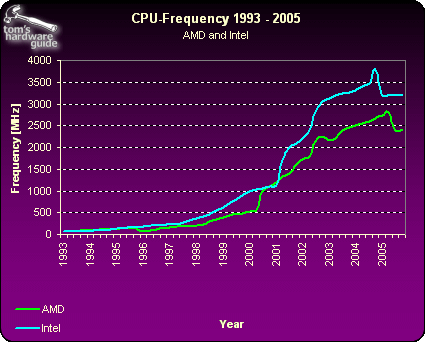

d = function (x) {return 2*x;}; t = function (x) {return 3*x}; f = function (a,b) { return d(a) + t(b); };
a = "hello"; reverse = function(x) { var result = ""; for (i = 0; i < x.length; i++){ result = x[i] + result; }; return result; }; reverse(a);
t = function(x) {return 3*x;}; [1,2,3,4,5].map(t);
add = function(a, b){ return a + b; }; [0, 1, 2, 3].reduce(add);
count = function(x) {return x.length;}; add = function(x,y) {return x + y;}; l = ["The", "status", "is", "not", "quo"]; l.map(count).reduce(add);
/input_key: document name
//input_value: document contents
map(String input_key, String input_value):
for each word w in input_value:
EmitIntermediate(w,"1");
//output_key: a word
//output_values: al list of counts
reduce(String output_key, Iterator intermediate_values):
in result = 0;
for each v in intermediate_values:
result+= ParseInt(v)
Emit(AsString(result))
/** * Licensed to the Apache Software Foundation (ASF) under one * or more contributor license agreements. */ import java.io.IOException; import java.util.ArrayList; import java.util.Iterator; import java.util.List; import java.util.StringTokenizer; import org.apache.hadoop.conf.Configuration; import org.apache.hadoop.conf.Configured; import org.apache.hadoop.fs.Path; import org.apache.hadoop.io.IntWritable; import org.apache.hadoop.io.LongWritable; import org.apache.hadoop.io.Text; import org.apache.hadoop.mapred.JobClient; import org.apache.hadoop.mapred.JobConf; import org.apache.hadoop.mapred.MapReduceBase; import org.apache.hadoop.mapred.Mapper; import org.apache.hadoop.mapred.OutputCollector; import org.apache.hadoop.mapred.Reducer; import org.apache.hadoop.mapred.Reporter; import org.apache.hadoop.util.Tool; import org.apache.hadoop.util.ToolRunner; /** * This is an example Hadoop Map/Reduce application. * It reads the text input files, breaks each line into words * and counts them. The output is a locally sorted list of words and the * count of how often they occurred. * * To run: bin/hadoop jar build/hadoop-examples.jar wordcount * [-m <i>maps</i>] [-r <i>reduces</i>] <i>in-dir</i> <i>out-dir</i> */ public class WordCount extends Configured implements Tool { /** * Counts the words in each line. * For each line of input, break the line into words and emit them as * (<b>word</b>, <b>1</b>). */ public static class MapClass extends MapReduceBase implements Mapper<LongWritable, Text, Text, IntWritable> { private final static IntWritable one = new IntWritable(1); private Text word = new Text(); public void map(LongWritable key, Text value, OutputCollector<Text, IntWritable> output, Reporter reporter) throws IOException { String line = value.toString(); StringTokenizer itr = new StringTokenizer(line); while (itr.hasMoreTokens()) { word.set(itr.nextToken()); output.collect(word, one); } } } /** * A reducer class that just emits the sum of the input values. */ public static class Reduce extends MapReduceBase implements Reducer<Text, IntWritable, Text, IntWritable> { public void reduce(Text key, Iterator<IntWritable> values, OutputCollector<Text, IntWritable> output, Reporter reporter) throws IOException { int sum = 0; while (values.hasNext()) { sum += values.next().get(); } output.collect(key, new IntWritable(sum)); } } static int printUsage() { System.out.println("wordcount [-m <maps>] [-r <reduces>] <input> <output>"); ToolRunner.printGenericCommandUsage(System.out); return -1; } /** * The main driver for word count map/reduce program. * Invoke this method to submit the map/reduce job. * @throws IOException When there is communication problems with the * job tracker. */ public int run(String[] args) throws Exception { JobConf conf = new JobConf(getConf(), WordCount.class); conf.setJobName("wordcount"); // the keys are words (strings) conf.setOutputKeyClass(Text.class); // the values are counts (ints) conf.setOutputValueClass(IntWritable.class); conf.setMapperClass(MapClass.class); conf.setCombinerClass(Reduce.class); conf.setReducerClass(Reduce.class); List<String> other_args = new ArrayList<String>(); for(int i=0; i < args.length; ++i) { try { if ("-m".equals(args[i])) { conf.setNumMapTasks(Integer.parseInt(args[++i])); } else if ("-r".equals(args[i])) { conf.setNumReduceTasks(Integer.parseInt(args[++i])); } else { other_args.add(args[i]); } } catch (NumberFormatException except) { System.out.println("ERROR: Integer expected instead of " + args[i]); return printUsage(); } catch (ArrayIndexOutOfBoundsException except) { System.out.println("ERROR: Required parameter missing from " + args[i-1]); return printUsage(); } } // Make sure there are exactly 2 parameters left. if (other_args.size() != 2) { System.out.println("ERROR: Wrong number of parameters: " + other_args.size() + " instead of 2."); return printUsage(); } conf.setInputPath(new Path(other_args.get(0))); conf.setOutputPath(new Path(other_args.get(1))); JobClient.runJob(conf); return 0; } public static void main(String[] args) throws Exception { int res = ToolRunner.run(new Configuration(), new WordCount(), args); System.exit(res); } }
This talk available at http://jmvidal.cse.sc.edu/talks/mapreduce/
Copyright © 2009 José M. Vidal
.
All rights reserved.
27 October 2008, 03:03PM